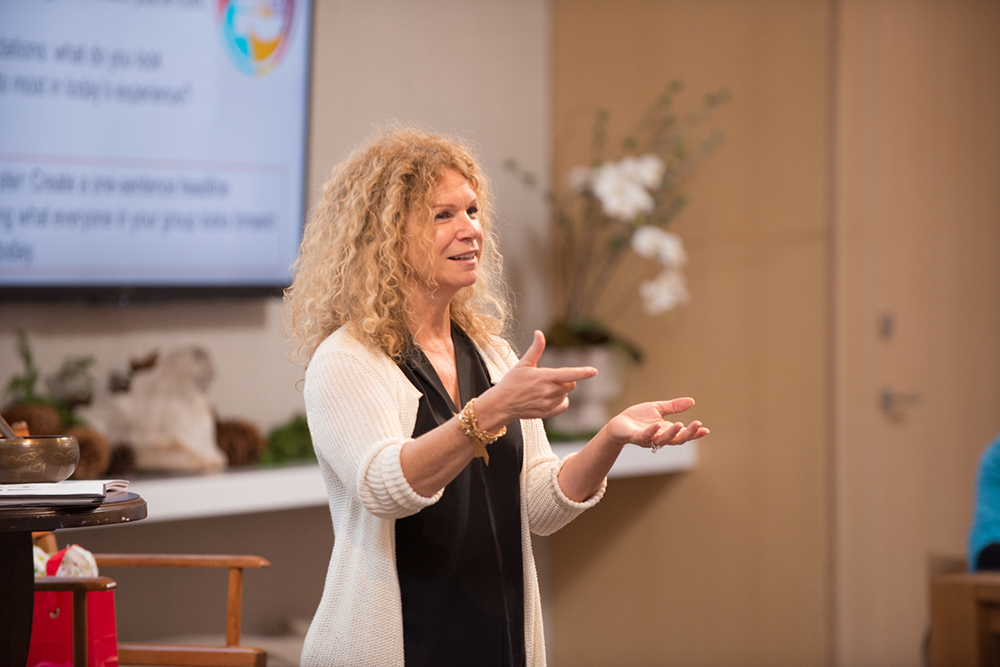How much time and energy have you spent trying to break bad habits? Perhaps you, or someone you know, are like many of my new clients. A bad habit or two have been identified and now solutions are being sought to break the habit. Since previous attempts made on her or his own have not resulted in the desired change, new clients often come to me saying “I need to stop …”
You would think this is where we’d focus in our work together: what is the bad habit and what discipline can be put in place to break it? Like the good old-fashioned “swear jar” in which the person trying to break a swearing habit places $1 in a jar every time she utters a profanity. After years of focusing on bad habits and the rigors required to break them, I have discovered this rarely works for sustained success. Many of us can behaviorally “hold our breath” and pause a bad habit for a period of time but focusing on what we do not want will eventually lead us right back to what we are trying so hard to reject.
Instead of focusing on the bad habit and how to break it, focus on the good habit that will replace the bad one.
– If I no longer do “x” what am I doing instead?
– What will I do instead that is helpful, healthful, aligned with my values, or directing me toward my goals?
Once we are clear about the good habit, what it looks, sounds, and feels like, then we ask: What strengths, talents, experiences, and knowledge do I already have to enact this good habit? Through this discovery, which is based on Appreciative Inquiry, here is what we find.
Most of us have a core of strengths, talent, knowledge, previous successes, or valuable experiences already going for us that we can tap into to build good habits. By defining the good habit we want and discovering what we already have at our disposal as we get started – even if it is just the knowledge of what the good habit looks like when practiced by others – we unleash the powerful combination of positive energy and constructive action to build a beneficial new habit. This means we do not undertake the desired change empty-handed but rather with an inventory of useful talents, assets, and knowledge to be activated, repurposed, or leveraged in support of the new habit.
Turns out that turning our goals into good habits is the best path to achieving them. This Forbes.com article, “The Surprising Activity That Helps You Reach Your Goals” by authors Senia Maymin, Ph.d and Margaret H. Greenberg details the results of a study on what most helps people achieve goals: “visualizing good habits, good outcomes, or both” This study revealed that envisioning good habits made the greatest positive difference to goal achievement.
People often challenge this approach with the concern that strengths-based approaches mean ignoring what is not working. Working from strengths somehow means we brush aside or deny that something may somewhere be wrong. This is not at all the case. Instead we shift the way we view what is not working. We recognize that what is not working, what frustrates or challenges us are useful as guideposts to point us toward what we need and want.
This is especially important in the case of what we label as bad habits. These habits are actually choices we are making to meet one of our enduring human needs. Instead of berating or shaming ourselves over a bad habit, we can recognize that habit as the tool we happen to be using right now to meet a need. The habit, no matter how ineffective or undesirable, then becomes a directional clue leading us to the need we are trying to meet. Once we know the need, we use curiosity to envision the positive possibilities and desired state on the other side of the bad habit or problem. That positive state envisioned helps layout the good habits to replace what is not working. And as illustrated in the article by authors Maymin and Greenberg, envisioning those habits is most helpful in actually reaching your goals.
Don’t focus on breaking bad habits, appreciate bad habits for what they are: guideposts to your essential human needs. By appreciating bad habits in this way, you can more readily identify the good habits that will replace them fueled by the strengths, knowledge, and wisdom you already possess.


